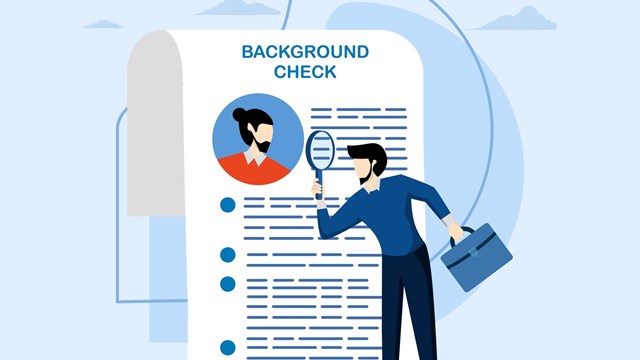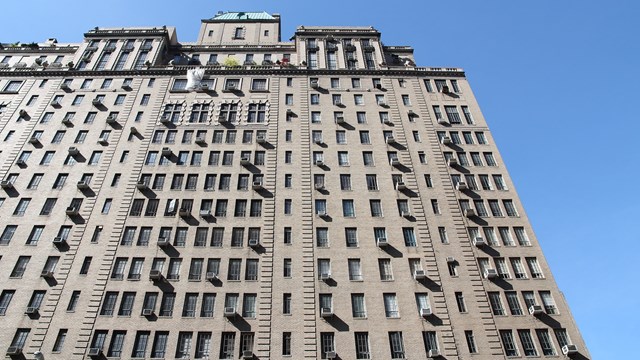With a worldwide fiscal crisis in full swing and many New Yorkers more stressed than usual over lost jobs, pay cuts, and dwindling assets, the last thing any co-op or condo community needs is the additional expense and acrimony of a lawsuit—especially when both can often be avoided.
According to the Association of the Bar of the City of New York (NYC Bar), alternative dispute resolution (ADR) is “a voluntary approach to settling disputes instead of going to court. A neutral person—a trained mediator—facilitates negotiations between participants in reaching a mutually acceptable resolution to their dispute.”
To this end, the bar association established the “Co-op and Condo Mediation Project,” a program designed to help shareholders, managing agents, boards of directors, and others settle residential disputes without drag-down, drawn-out court hearings. The service is available in situations where all parties to a dispute are prepared to seek mediation.
“Although the program is not designed or intended to resolve all such disputes, it is ideal for what are essentially quality of life disputes that, for lack of a quick resolution, too often escalate into lengthy and contentious litigation,” according to bar association member Michael T. Manzi, who is with the Manhattan law firm of Balber Pickard Maldonado & Van Der Tuin, PC.
The “Co-op and Condo Mediation Project” is a joint effort by two bar association committees—the Cooperative and Condominium Law Committee and the Alternative Dispute Resolution Committee. “Neighbors may find themselves involved in conflict over any number of concerns, including the need for quiet or the use of common space,” said Dan Weitz, chair of the association’s ADR committee. “This special program offers neighbors (and the boards they often ask to intervene) a fast, inexpensive and confidential process through which to achieve durable solutions to their conflict.”
Why Mediate?
According to the bar association statistics, approximately 75 percent of cases brought to mediation result in an enforceable agreement—with far less money spent than on a full-blown court case. Some of the most common problems in multifamily buildings are the kinds of issues best suited to resolution through ADR—things like noise and odor disputes, disagreements over repairs or rules violations, and conflicts with contractors. Disagreements that might ordinarily lead to flurries of increasingly aggressive letters from attorneys and ultimately wind up becoming lawsuits can frequently be settled in a meeting or two. Noise, for example, is annually the city’s top complaint. According to the callers to the 311 Citizen Service Center hotline, of which there were 5.4 million calls from July through October 2008, the number one complaint was noise, of which 134,573 calls were logged into the center.
Consider for example the case of one Manhattan building. One owner complained to the board about noise he believed was coming from the neighbor above him. After trying to resolve it between themselves without success, the two neighbors decided to mediate their dispute. During the first mediation session, it was discovered that the noise was actually being caused by a third neighbor. The third owner was invited to participate in the mediation process, and through everyone’s cooperation and the skillful guidance of the mediator, all agreed in writing to reduce their noise level at specified times in consideration of their neighbors. Better still, mechanisms to resolve future noise issues were agreed upon, and the matter was resolved—all without ever going near a courtroom.
“It has to be voluntary on both sides,” says New York City Bar Association spokesperson and mediator and conflict resolution consultant Gail R. Davis, Esq. “Both parties have to want to do it. If one party doesn’t want to do it, it’s not going to work.” Davis says that since both parties collaborate and agree on the terms of the resolution, there is no “loser,” and the conclusions reached are much more likely to stick than if they were imposed upon one party by an outside authority.
Also, says Davis, the process of mediation is private and confidential.
Finally, mediation can be binding or non-binding, and any participant—or the mediator him- or herself—may stop the process at any time. If the participants like, a binding settlement agreement can be written and signed.
ADR in NYC
While some states (like New Jersey) have laws requiring arguing parties to seek out alternative dispute resolution as a matter of course before filing lawsuits, others (like New York) have really only begun to embrace the concept as a way to save money and unclog a badly overburdened court system.
The program is in its third year, and makes use of bar association members’ expertise to mediate issues arising in the city’s thousands of co-op and condo communities. “When the city Bar initially started the ADR committee,” says Davis, “they asked for applications from people with a background and understanding of condo and co-op law and issues.”
“What’s more important however, is the skills of the mediator in bringing the parties together,” Davis continues. “The mediators don’t decide anything or act as judges, but really just facilitate and help the parties understand the issues and try to see the other person’s point of view, to see where the other person is coming from. They help the participants explore options so that they can try to resolve their dispute in a more meaningful and long-lasting kind of way.”
Choosing a Mediator
When ADR proceedings are initiated through the bar association, Davis says that both parties are given a packet of information containing information on ADR and the biographies of five of the bar association’s ADR mediators. The parties must then choose two of those five to work with on their own dispute.
It’s also important to note that while ADR is very much less expensive than attorney and court costs, it is not entirely free. According to Davis, each party pays a $100 administrative fee to the bar association for mediation services in the New York City area, and the mediators themselves charge a fee for their time.
“The mediators on the list charge their own different fees,” says Davis. “There’s a low rate, medium rate and a high rate. [The disputing parties] are given one mediator from the lower rate bracket, three from the middle rate, and one from the high rate,” and the parties can then decide, based on the mediators’ bios and fees, which professional is the best fit for them.
“When the parties send in the selection form, the first-choice mediator is contacted to see if they’re available. If they are not available, or if for some reason there is a conflict of interest—if that mediator represented [one of the parties] in the past or something like that—then the case goes to the second-choice mediator.”
In contrast to the strict protocols of a courtroom, the ADR process can be fairly informal, says Davis—though there are certain rules of etiquette and best practices professional mediators hold their clients to during the process. “I tell the parties, ‘This is your process—if you want to meet with me individually on occasion we can, but what we discuss will be confidential.”
Mediation sessions themselves can be held just about anywhere, Davis continues. “It depends on the mediation,” she says, “but we try to find a neutral location—not at somebody’s house, in other words. It could be the mediator’s office, it could be at the city bar [offices], or it could be in the common room at the co-op or condo.”
Coming to Closure
In another example of how ADR can help smooth relations between neighbors, two Manhattan co-op shareholders owned the identical units in the same line with terraces directly below each other. The lower-floor resident occasionally smoked cigars on his terrace and the smoke bothered the neighbor directly above him—one of whose children was asthmatic and very negatively affected by smoke. Their attempts to talk about this had resulted in insults and shouting matches in the elevator.
The shareholders’ managing agent suggested mediation, and both neighbors agreed. In the mediation, the two were able to vent their anger, but also to listen to each other. In the end, their mediator helped them resolve their issues quickly with a simple agreement: the smoker would smoke only on weekends, when the other family was generally away, and both neighbors worked out a way to communicate further difficulties should they arise in the future. Both parties left mediation with a better understanding and more compassion for their neighbor.
According to Davis, once both sides have heard each other out with the help of their mediator and an agreement is reached, the parties must decide how to codify what has been decided between them.
“It’s more of a settlement that’s agreed on by both parties, and is generally put into writing that’s binding,” says Davis. “It doesn’t have to be, but most cases are. Each party gets a copy of [the agreement] they can refer to if necessary and say, “You know, this is what we agreed on, and you’re not following the agreement.”
Davis adds that in cases where a problem reemerges, the parties can always come back for another session of mediation if they’re still having difficulty. Much like couples’ therapy, it sometimes takes more than one session of ADR to really put paid to a tough problem and move on.
Mediation Moving Forward
As building communities all over the city look for ways to trim their budgets and avoid the quagmire of lawsuits, ADR offers an alternative that is cheaper, faster, and less acrimonious than having one’s day—usually many days—in court. According to Davis, the bar association’s mediation coordination services are available to anyone in any of the five boroughs. According to the Davis, “Mediation is an opportunity to resolve your co-op or condo dispute quickly, efficiently, inexpensively, and sensibly.”
For more information or to commence a mediation go to the association’s website at http://www.nycbar.org /Publications/ADR.htm, download an informational PDF at www.nycbar.org/pdf/ mediate.pdf or call 212-382-6701.
Hannah Fons is associate editor of The Cooperator. Additional research for this story was conducted by Managing Editor Debra A. Estock and Assistant Editor Melissa Swinea.







Leave a Comment